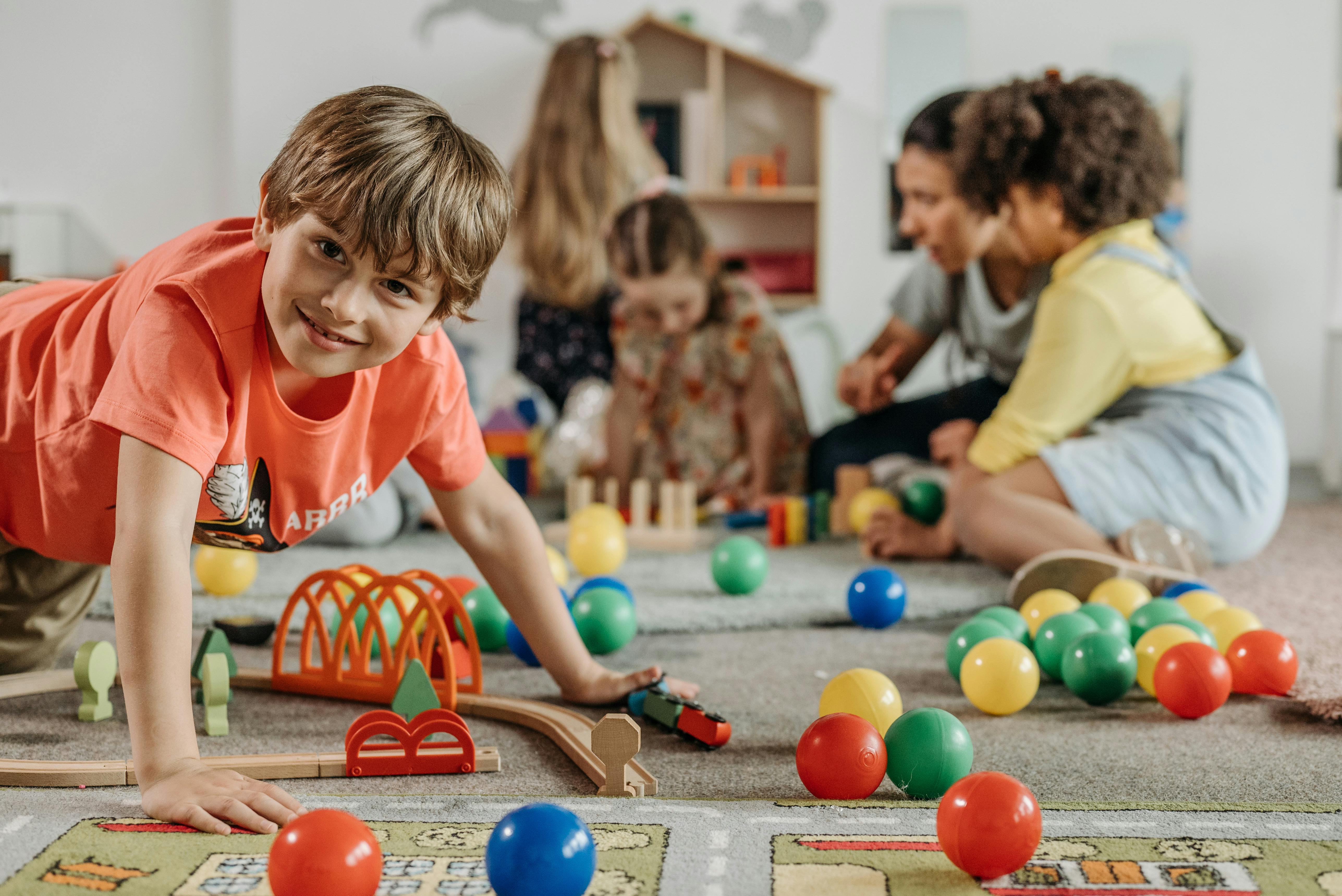Blog How to Choose the Right Daycare or Preschool for Your Child: Expert Guidance for Parents
How to Choose the Right Daycare or Preschool for Your Child: Expert Guidance for Parents

Amanda
A comprehensive guide for parents navigating the challenging process of selecting the ideal daycare or preschool for their children, featuring expert advice on evaluating program quality through class sizes, outdoor policies, separation strategies, and teacher qualifications, with additional resources for continued educational enrichment through NeelCamp programs.

Selecting the perfect daycare or preschool for your little one can feel overwhelming. With beautiful websites and social media feeds showcasing happy children, how can you determine which program truly delivers on its promises? Our in-house child development expert, Emily Andrews, shares essential considerations to guide your decision-making process.
First Steps in Your Selection Journey
You've likely researched several options based on location, reputation, and their educational philosophy. Now that you have acceptance offers, how do you make the final decision between seemingly wonderful programs?
Here are four critical questions to ask administrators during your evaluation process:
1. Class Size and Teacher Ratios Matter
Ask: "How many children will be in my child's class or group? With how many teachers?"
Class size is perhaps the most significant quality indicator in early childhood education. While programs must follow state-mandated ratios based on children's ages, high-quality centers often choose to maintain groups slightly below the maximum permitted number. Smaller groups allow teachers to provide better supervision, more individualized attention, and enhanced support for social interactions—all crucial elements for your child's development.
2. Outdoor Time and Screen Usage Policy
Ask: "How much time do children spend outside each day? What weather conditions keep them indoors? Do children watch screens on rainy days?"
Outdoor play is essential for childhood development—it promotes scientific curiosity, social learning, problem-solving skills, and better physical health. Quality programs prioritize daily outdoor time regardless of minor weather challenges. With increasing technology in early childhood settings, many centers now resort to screens during inclement weather or transitions. Choose a program whose outdoor philosophy and screen time policies align with your values.
3. Separation Support Strategies
Ask: "How do you handle separation anxiety?"
The transition from home to school represents a significant milestone in both your child's and your own emotional journey. Even children who appear comfortable need reassurance and emotional support during this transition.
Be wary of vague responses like "it's case by case." While individualized approaches are important, you want to hear thoughtful, detailed strategies that demonstrate the program prioritizes attachment and emotional security—foundational elements for healthy social-emotional development.
4. Teacher Qualifications and Experience
Ask: "What level of training and experience do your teachers have specifically with this age group?"
Don't just inquire about general education credentials—ask about specialized training for your child's developmental stage. A teacher with elementary education experience but limited preschool background might implement developmentally inappropriate academic pressures instead of the play-based learning young children need. Understanding staff qualifications helps ensure the program's teaching approach matches your child's developmental needs.
Additional Quality Indicators to Consider
These supplementary questions can provide further insight into program quality:
-What support staff (floaters, specialists, consultants) do you employ?
-Is your program inclusive of diverse needs and backgrounds?
-What extended care options are available (early morning, after-school, holiday periods)?
-How do you involve parents in the classroom community?
-What is the program director's teaching background?
-How do you approach discipline and behavior management?
-What security measures and emergency protocols are in place?
-How frequently and thoroughly do teachers communicate with parents?
Personalized Considerations
Tailor your questions to your child's specific interests and needs:
- "My child loves sensory experiences. What messy play opportunities do you offer?"
-"Reading is important to us. Do teachers read individually with children?"
Trust Your Instincts
While asking thorough questions is essential, your parental intuition remains a powerful guide. After gathering information, reflect on which environment feels most aligned with your child's personality and your family's values.
Expanding Your Child's Educational Journey
At NeelCamp, we understand that your child's educational experiences extend beyond preschool and daycare. As your child grows, you might consider enrichment through our after-school programs and summer camps to continue fostering their development.
For more guidance on children's educational experiences, check out these helpful resources from our blog:
i) 10 Pro Tips for an Unforgettable Summer Camp Experience
ii) What Is the Ideal Age for Your Child to Start Summer Camp
iii) 6 Hacks for Staying Healthy at Summer Camp: Your Ultimate Guide
Remember, choosing the right educational environment for your child is challenging, but asking thoughtful questions and following your parental instincts will lead you to the best decision for your family.
Published on: May 19, 2025 11:06 AM
Views: 23

